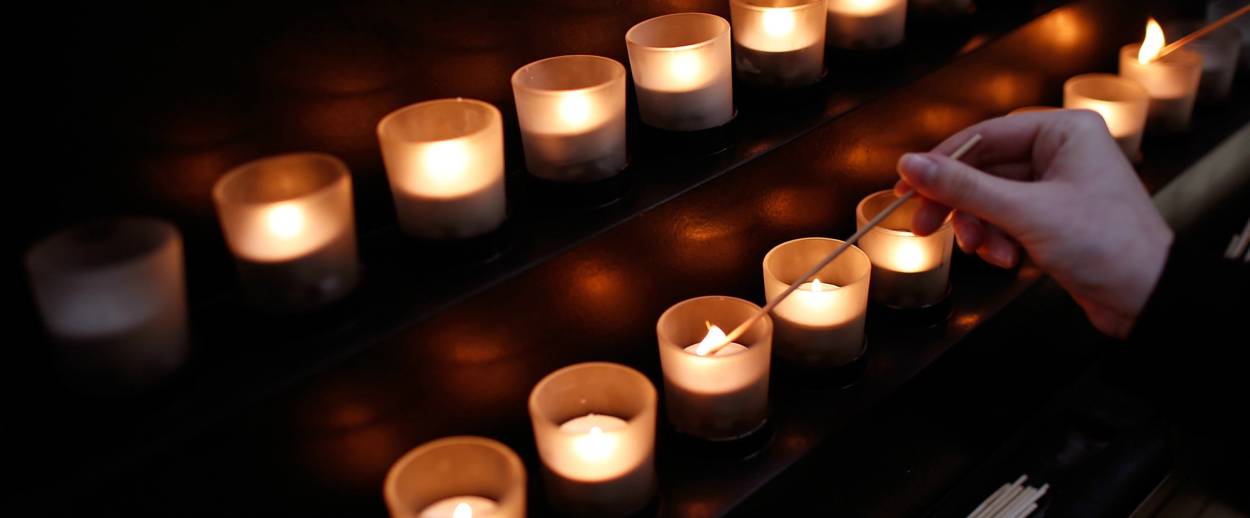The Holocaust Should Never Be Minimized
A bit review in ‘The New Yorker’ provides an unfortunate master class in how to relativize and de-emphasize the Holocaust’s unparalleled horrors




A single sentence from The New Yorker’s anonymous capsule review of Bernard-Henri Lévy’s latest book, The Genius of Judaism:
And there are moments of real contradiction, as when he calls the Holocaust a “crime without parallel” but then professes befuddlement at the phenomenon of “competitive victimhood.”
The sentiment here is at once illogical and sinister. Illogical because the reviewer has basically set a trap for Lévy, whereby merely stating the truth about the Holocaust— that it is indeed a “crime without parallel”—makes one guilty of diminishing other tragedies. The New Yorker has it backward. The competition for victimhood wasn’t started by Jews but in reaction to them. The issue is not minimizing other historical tragedies in relation to the Holocaust but minimizing the Holocaust in relation to other historical tragedies.
This is not just the realm of Holocaust deniers but increasingly progressives who, whether through conscious malice or sheer naiveté, speak of the Holocaust (when they’re not speaking of “holocausts”) as but one unfortunate episode among many, not a world-historic crime that singled out Jews first and foremost. It’s a perverse sensibility that decrees the uttering of basic truths about the Holocaust akin to the historical exploitation and obfuscation such basic professions are meant to rebut. If those like The New Yorker’s anonymous book critic believe that Levy is engaging in unseemly “competitive victimhood” simply by claiming that the Holocaust, in both nature and degree, was worse than any other crime in human history (which it was), that’s because they falsely interpret such claims as entries into a victim competition—when, in fact, it is those challenging the singularity of the Holocaust who are responsible for creating this obscene contest. Indeed, by relativizing the Holocaust, the reviewer sounds like a staffer in the Trump White House, which left out mention of the Jews from its Holocaust Remembrance Day statement because to do so would somehow insult all the “other” people who suffered.
The review’s sinister element comes in its accusation that Jews like Levy are responsible for corrupting the commemoration of history and not, say, the Muslim propagandists who frequently invoke the Holocaust to equate Israelis with Nazis or the British student activists who voted against recognizing Holocaust Memorial Day because doing so “prioritizes some lives over others.” As the British sociologist David Hirsch observes, “When people get competitive about the Holocaust, they do it by accusing the Jews of being competitive.” Not even in talking about something so grave as the Holocaust can the Jews avoid being pushy, it seems.
The constant reminder that the Holocaust is unparalleled in human history comes not as a result of Jewish special pleading but rather it’s opposite: an insistence that Jews hog the world’s sympathy for selfish political ends. A major reason why Jews and others often feel a need to stress the Holocaust’s distinctiveness is because so many seem intent on emphasizing its ordinariness. It is a response to those who, motivated by resentment and equipped with mushy universalist bromides, would challenge and undermine that singularity—an attitude so perfectly embodied by a single, passive-aggressive sentence from The New Yorker.
James Kirchick is a Tablet columnist and the author of Secret City: The Hidden History of Gay Washington (Henry Holt, 2022). He tweets @jkirchick.